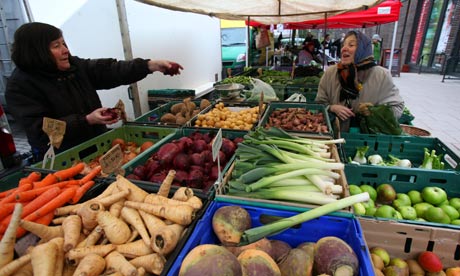
The UK student Ibrahim Langoo recently posted a photo of his Kentucky Fried Chicken meal containing what has been described as a "brain" to his Facebook page. The photograph has understandably caused widespread outrage. The brain turned out to be a kidney, and a KFC spokesperson assured panicked fast food consumers that while the kidney-nugget was "unsightly", it did not pose a health risk. The picture went viral, and Langoo has said about the experience: "I was grossed out by the fact that I could so easily have eaten it without realising. I just wanted to get out of KFC as quickly as I could. I still feel really sick and disgusted by it all now. I never want to eat KFC again."
As a vegan, I'm a bit confused about the hullabaloo. I'm not sure if meat eaters realise this, but … well, there's not exactly a polite way to say this, so I guess I'll just spit it out: if you eat meat, you are eating dead animals. There's no way around it. I understand that it's strange to have a part of the animal which you weren't expecting to eat popping up on your dinner plate (or tray, in this case). But is it really as disgusting as this hoopla is making it seem? What's the difference, except for taste?
We continually draw distinctions between what's dinner and what's trash, who our pets are and who our meals are. We live with cats and dogs we smother with love and affection, yet other animals live miserable lives and endure horrific deaths because we've decided their lives are only worth the price of a fast food meal. But if we then accidentally eat a part of the animal we're not accustomed to, it's the end of the world.
Part of the success of fast food companies lies, of course, in exactly that: distancing ourselves as much as possible from what we're eating. If we knew the sickening conditions animals in factory farms are subjected to (or, for that matter, the slavery-like work conditions forced on human beings who pick the under-ripe tomatoes and grow the iceberg lettuce for fast food hamburgers), we wouldn't be able to sleep at night. I guess it's true, as Paul McCartney once said, "if slaughterhouses had glass walls, everyone would be a vegetarian."
The fast food system – cheap food prepared quickly, eaten quickly, forgotten quickly – hinges on one slim peg: wilful ignorance. When incidences like this crop up, they slam right into what we don't want to know. So we get outraged. But obviously the real scandal is that we're allowing ourselves to fall for this great lie in the first place: that what we eat doesn't matter, that it arrived in our hands magically, and that there are no consequences to our diets.
And it's not just meat eaters who fall for it – far too many vegetarians, in search of the comforting junk food they grew up with, fall into the trap of consuming astonishingly processed food-like substances, while agribusiness giants are all too happy to indulge us with an endless array of fake meat, processed cheese, or greasy butter substitutes.
The other side of the great lie, however, is how easy it is to step out of the trap of fast food and processed food. As it turns out, real food grown by people who are paid an adequate wage for it isn't difficult to find. Farmers' markets are popping up everywhere, and supermarkets have a wide variety of actual food, not dubious reconstituted frozen items, for sale these days (my tip: avoid the interior aisles of the store. The real stuff is always displayed on the edges: the fresh bread, the organic vegetables and fruits).
I know what you're going to say: "I don't have the time". I'm not going to tell you that cooking real meals doesn't take time. I'm not going to feed you a line about the joys of sitting down to a lovingly crafted homemade dinner either. The truth is: cooking food takes time, and it takes resolve to pull that time away from the million other things that need to be done in your life.
But what's the alternative? Let's not even think about it.







